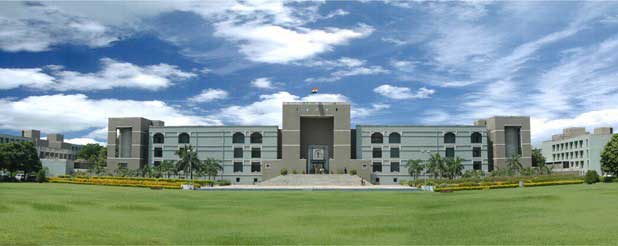Gujarat High Court on Tuesday set aside the 2017 election of a powerful minister and BJP leader on the ground of manipulation during the counting of votes, marking the first time in the country a cabinet minister is being slapped with the punishment over such a charge.
The nullification of the election of Bhupendrasinh Chudasama has all the ingredients of a political crime thriller, demonstrating how easily a politician-official nexus can manipulate results and that the Election Commission of India cannot intervene despite tell-tale evidence of wrongdoing. The only option before the wronged candidate is to file an election petition and fight for years to salvage his poll fortunes.
The irony was heightened by the fact that Chudasama is the law minister of Gujarat. His importance in the BJP can be gauged from the wide range of portfolios he holds in the Vijay Rupani government: education, parliamentary affairs, cow breeding and civil aviation, besides law.
Chudasama had been Gujarat’s education minister when Narendra Modi was chief minister. Before Modi’s ascent to the top of Gujarat politics in 2002, Chudasama had been agriculture minister.
Justice Paresh Upadhyay cancelled Chudasama’s election in an order passed on a petition filed by the BJP leader’s Congress rival, Ashwin Rathod, in the Dholka constituency. Chudasama had won by a margin of 327 votes in the 2017 Gujarat Assembly polls.
In his election petition, Rathod had alleged that Chudasama had indulged in “corrupt practice and breach of many of the mandatory instructions of the Election Commission, at various stages of the election process, more particularly at the time of counting of votes”.
The high court nullified the victory after over 70 hearings since January 2018. Chudasama had also approached the Supreme Court seeking scrapping of the petition but did not get any relief. He now has the option of again approaching the apex court against the high court verdict.
Parties barely show any interest in such legal wrangles. But in this case, the Congress candidate was so convinced of fraud committed by the BJP that he unwaveringly pursued the matter to its logical conclusion.
Soon after the election results in December 2017, Congress candidate Rathod had approached Gujarat High Court alleging that Chudasama had unfairly been declared the winner in gross violation of procedures.
Rathod’s contention was that 429 postal ballots were arbitrarily cancelled by the polling officer to declare the BJP candidate victorious by 327 votes. As the counting progressed, the margin became narrower, which is when the mischief started.
The Election Commission handbook clearly says that postal ballots must be counted before the last two rounds of EVM counting. But returning officer Dhawal Jani, who had been frequently speaking to somebody over the phone, which itself is illegal, finished the EVM counting first before taking up the postal ballots. There were 1,356 postal ballots.
The returning officer, who would have had an idea how close the contest was, rejected 429 postal ballot votes. The election observer, IAS officer Vinita Bohra, who had to independently oversee the counting and certify that due process was followed, approved the result.
The Congress candidate demanded recounting and re-verification of the postal ballots in writing but it was not accepted.
The Election Commission rules lay down that if the margin of victory is less than the votes rejected, there shall automatically be re-counting and re-verification. Re-counting has to be done without asking, it is mandatory.
During the hearing, Justice Upadhyay asked the returning officer whether the postal ballots should have been counted before the EVM counting was over, to which Jani said yes. Asked if he had followed the procedure, the officer said no.
When Jani was shown a video clipping of him talking on his mobile phone, he admitted that such an act inside the counting centre was illegal. Only the Election Commission observer is allowed to carry a mobile phone inside a counting centre.
Expressing shock at the brazen manipulation, Justice Upadhyay made Jani and observer Bohra, and the Election Commission itself, respondents in the case. Polling officers are usually made witnesses in election-related cases but this was the first time they were told to be respondents. In that sense, many believe, the verdict is as much an indictment of the Election Commission as of the BJP.
Congress spokesperson Kapil Sibal was quick to make that point, saying: “It is clear constitutional and legal processes are being weakened in the country. Returning officers and observers can’t violate norms without pressure from the top. The Election Commission of India will have to take responsibility.
“Democracy rests on fair election and if corrupt practices are allowed, the edifice will collapse. The BJP tries to capture power by any means; if not through election, by buying MLAs later.”
Sibal, who had been law minister in the UPA government, added: “We are surprised why Prime Minister Narendra Modi doesn’t get angry at these corrupt practices. As Gujarat chief minister, Modi protected several ministers who faced corruption and criminal charges.
“If Modiji is serious about fighting corruption as Prime Minister, a decision should be taken not to move the Supreme Court in this case and sack this minister from the BJP.”











